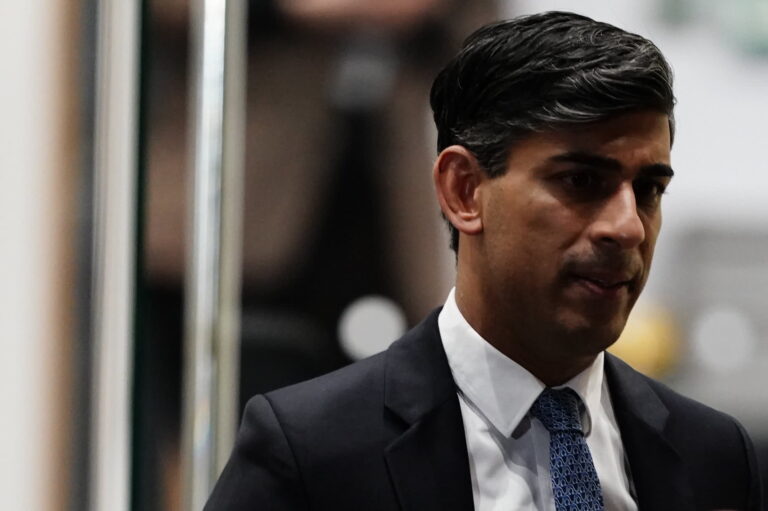Labour leader Tony Blair arrives at Downing Street after winning the election, surrounded by flag-waving crowds, on May 2, 1997.
Geoff Obers | BBC News & Current Affairs | Getty Images
In a report on Wednesday analysing share price trends since 1979, Citi said UK shares have historically tended to be “relatively flat to declining” in the six months following elections (the study excluded the “volatile financial conditions” of the dot-com collapse and the global financial crisis).
According to Citi, the MSCI UK index of large- to mid-cap stocks rose about 6% six months after a Labour victory and fell about 5% after a Conservative victory.
The firm said the more domestically-oriented FTSE 250 index has tended to outperform the FTSE 100 after elections, with even greater outperformance following a Labour victory.
The bank also noted that defensive and financial stocks tend to perform well after elections, while energy stocks have performed well on both sides of the aisle.
Shadow Chancellor of the Exchequer Rachel Reeves, Labour Leader Sir Keir Starmer and Deputy Leader Angela Rayner attend the Labour Party’s Election Manifesto Launch Event at the Backstage Centre in Purfleet, England on May 16, 2024.
Leon Neal | Getty Images News | Getty Images
According to Capital Economics, the UK stock market has fallen five times under previous Labour governments.
But the consultancy’s chief market economist, John Higgins, said it would be “disingenuous” to blame all of these events on the party. These events occurred during the Great Depression of the 1930s, the post-war period of the 1940s, the aftermath of the oil market shock in the early 1970s, the collapse of the dot-com bubble in 2000 and the global financial crisis, Mr Higgins said in a note on Thursday.
Higgins also noted that the relative performance of UK shares since the Conservative government came to power in 2010 has been “broadly disappointing”.
“Regardless of what history may suggest, a Labor return to power this time around won’t be a big issue for investors,” Higgins added.
Labour leaders, particularly Shadow Chancellor Rachel Reeves and party leader Keir Starmer, have repeatedly stressed over the past year their emphasis on fiscal discipline and seeking to reduce the national debt as a proportion of gross domestic product.
Reeves, a former banker, has also sought to charm business leaders and financial luminaries, meeting with executives and attending events such as the World Economic Forum in Davos.
Barclays Chief Executive C.S. Venkatakrishnan told CNBC in January that political risk in the UK was “lower than it’s ever been” and that differences in economic policy between political parties were “fairly small.”
Labour figures have made it clear that in this election campaign they will accuse the Conservatives of running up too much public debt and damaging Britain’s economic credentials during the so-called “mini-budget crisis” under Sunak’s short-lived predecessor, former chancellor Liz Truss.
In comments last week, Chancellor Sunak said inflation was “back to normal”, the economy was growing and wages were “sustainably rising”.
John Higgins of Capital Economics said the pound had crashed five times under Labour governments in the past 100 years, but this time wider factors were at work.
Three could be attributed to the “unsustainability of the fixed exchange rate regime” of the 1930s to 1970s, one to the global financial crisis and the fifth to the 1976 debt crisis, he said.
The lack of fiscal differences between the two parties means the outlook for sterling and gilts will remain more closely linked to interest rate expectations, analysts predict.
“[Foreign exchange] “Market reactions are strongest when there is a lot of uncertainty surrounding an election. This is not the case in the current circumstances. If history is any guide, we expect the pound to strengthen modestly over the next few weeks with little reaction to the election result itself,” Joe Tuckey, head of FX analysis at Argentex Group, said in a note on Friday.
“This was the strategy leading up to the New Labour victory in 1997, when the pound rose by just 2.5% in the weeks before polling day. In many ways, the pound will now be refocused around inflation and the Bank of England’s interest rate policy, which is likely to be a more determinant of price movements than the election outcome.”
—CNBC’s Ganesh Rao contributed to this article

